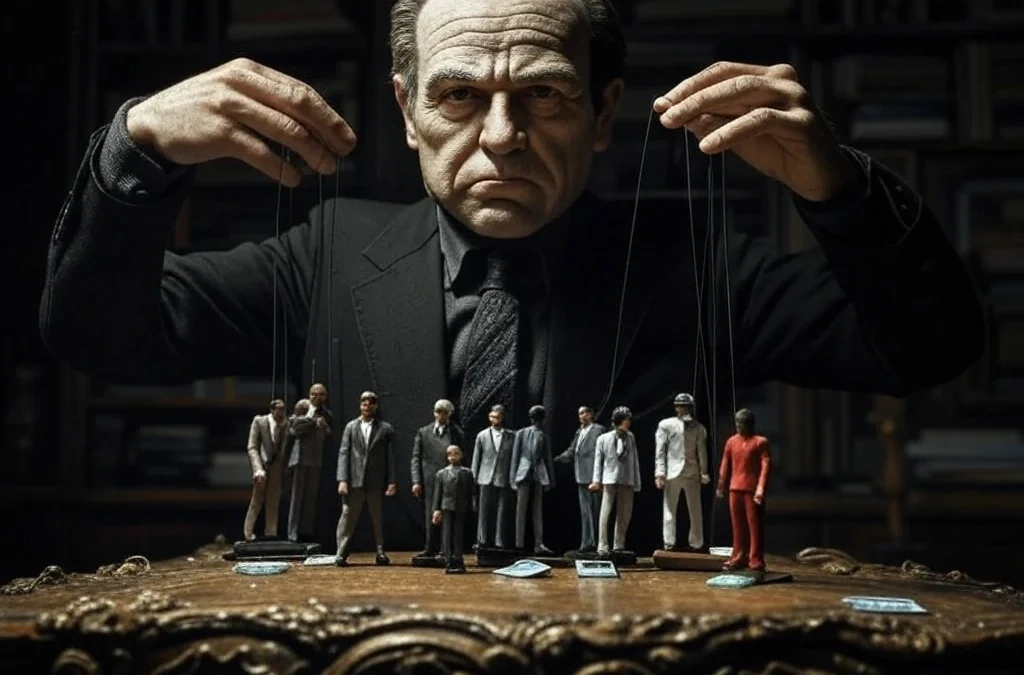The Backfire Effect is a fascinating psychological phenomenon that you may not be aware of, but it actually influences your decisions and opinions on a daily basis. In simple terms, it’s when your beliefs are challenged by contrary evidence, but instead of changing your mind, you hold onto your original viewpoint even more strongly. It’s like a self-defense mechanism of our beliefs, often leading us down the path of misconception and stubbornness.
To illuminate this concept more clearly, we’ve compiled a list of the top 20 examples of the Backfire Effect. These instances, drawn from various areas of life, will help you understand how this intriguing effect works and how it affects your daily decisions and opinions. By the end of this article, you’ll be more aware of your cognitive biases and better equipped to handle information that contradicts your pre-existing notions.
Definition of the Backfire Effect
The backfire effect is a cognitive bias where people become more convinced of their beliefs when faced with evidence that contradicts them. Instead of changing their views, they react defensively, doubling down on their original stance.
The backfire effect can be seen in various situations, like political debates, medical misinformation, climate change denial, or even personal beliefs and stereotypes. These examples show how this bias can shape decision-making, block effective communication, and spread misinformation.
Understanding the backfire effect can be very helpful in improving communication, resolving conflicts, and fostering critical thinking. It highlights the complexity of human psychology and the difficulty of changing deeply held beliefs.
The Best Backfire Effect Examples
1. Flat Earth Theory
Even though there’s centuries of evidence showing the Earth is round, there are still people who insist it’s flat. And oddly enough, when they’re shown clear proof – photos from space, scientific measurements – they don’t just ignore it, they become even more committed to the idea of a flat Earth. This shows just how powerful the backfire effect can be.
2. Political Beliefs
Politics is a classic area where the backfire effect shows up. When people are shown evidence that their preferred party or politician is wrong about something, instead of changing their mind, they become even more loyal to their political stance. This kind of reaction shows how the backfire effect makes it difficult to change strongly held beliefs.
3. Moon Landing Denial
Some people are firm believers in the idea that the 1969 moon landing was staged, and when confronted with solid proof – videos, rock samples, and expert opinions – they tend to double down on their belief that it was all a hoax. Instead of reconsidering their views, they strengthen them, which is a great example of the backfire effect.
4. Nuclear Energy Opposition
Despite growing evidence that nuclear energy could be a cleaner and more efficient energy source compared to fossil fuels, many people remain strongly opposed to it. When they’re shown data proving that nuclear power is relatively safe and low in carbon emissions, they often strengthen their anti-nuclear stance. This reaction highlights the backfire effect.
5. Conspiracy Theories
Conspiracy theories are like the perfect breeding ground for the backfire effect. When believers are presented with hard facts that contradict their theory, instead of accepting that their theory might be wrong, they interpret the facts as part of the conspiracy itself. This strengthens their belief even more – talk about backfiring!
6. Smoking and Health Risks
Even when smokers are shown terrifying statistics and firsthand medical evidence about the dangers of smoking, some will either shrug it off or, surprisingly, start smoking even more. It’s like the facts make them hold onto their habits tighter, an obvious example of the backfire effect in play.
7. Religious Beliefs
Religious beliefs are deeply personal, so when people are confronted with evidence or arguments that contradict their faith, instead of questioning their beliefs, they often come out more convinced than ever. This is another example of how the backfire effect reinforces what someone already believes, even in the face of opposing facts.
8. Diet and Health
You’ve probably met someone who sticks to a certain diet, even though there’s solid evidence showing it might not be the healthiest choice. Whether it’s keto, paleo, or some fad diet, when they’re shown scientific data highlighting the risks, they often become more committed to their eating plan, which is yet another clear backfire effect.
9. Anti-Coffee Myths
Some people believe that coffee is harmful to health, even though many studies suggest moderate consumption can have health benefits. When presented with this research, coffee critics may only become more convinced that it’s bad for you, showcasing the backfire effect.
10. 5G Health Fears
Even though extensive research has shown that 5G technology does not pose health risks, some people remain convinced that it causes cancer or other illnesses. When confronted with scientific studies proving otherwise, they dig in further, illustrating the backfire effect.
11. Overpopulation Concerns
Some people believe that the world is drastically overpopulated and that we’re running out of resources, despite evidence showing that birth rates are declining in many parts of the world. When confronted with this data, they might strengthen their overpopulation concerns, demonstrating the backfire effect.
12. Holocaust Denial
Despite mountains of historical evidence, there are still individuals who deny that the Holocaust ever happened. What’s even more surprising is that when they’re presented with detailed facts – eyewitness testimonies, documents, and photographs – they often become even more convinced of their denial. This reaction perfectly illustrates the backfire effect.
13. Evolution Denial
Even though the scientific community overwhelmingly supports the theory of evolution, some people reject it outright. What’s really interesting is that when these individuals are presented with more evidence—from fossils to genetic studies—they actually become more steadfast in their denial. This is a clear demonstration of the backfire effect at work.
14. Homeopathy Beliefs
Homeopathy might have been debunked by scientific studies, but that doesn’t stop believers from doubling down on their faith in it. In fact, when they’re shown that homeopathy is no better than a placebo, some people only become more convinced that it works. It’s another obvious case of the backfire effect in action.
15. Astrology Beliefs
Astrology believers often hold tight to their star sign predictions, even when confronted with evidence that there’s no scientific basis for astrology. Instead of questioning the validity of horoscopes, they might lean more heavily into their belief, showing how the backfire effect makes it hard to change their minds.
16. GMOs and Health Risks
There’s plenty of scientific research showing that genetically modified organisms (GMOs) are safe to consume, but some people remain convinced that they’re harmful. When these individuals are shown the evidence, they often dig in deeper and become more fearful of GMOs, another prime case of the backfire effect.
17. Video Games and Violence
Despite research showing no strong link between violent video games and real-world violence, some people continue to believe that video games cause aggressive behavior. When shown evidence that contradicts their view, they often become even more convinced that video games are to blame for violence, demonstrating how the backfire effect strengthens their beliefs.
18. Psychic Powers
Many people believe in the existence of psychic abilities, even though scientific studies have failed to prove them. What’s fascinating is that when believers are shown evidence that psychic powers aren’t real, they don’t back down. In fact, they often become more convinced of these abilities, a clear example of the backfire effect.
19. Miracle Cures
There are always claims of so-called “miracle cures” for serious diseases, and despite scientific evidence debunking these treatments, some people become even more certain that they work when presented with the facts. It’s a striking example of how the backfire effect can make people cling to false beliefs even harder.
20. Alien Abductions
Belief in alien abductions is a perfect example of the backfire effect. Even when presented with scientific explanations that debunk these stories – such as sleep paralysis or hallucinations – some individuals only become more convinced that their alien encounter was real. Instead of changing their minds, they strengthen their belief, showcasing the backfire effect once again.
Psychological Roots of the Backfire Effect
The backfire effect is deeply rooted in human psychology, particularly in cognitive biases that protect our core beliefs. At the heart of this phenomenon lies confirmation bias – our tendency to seek, interpret, and remember information that confirms what we already believe, while dismissing data that challenges our worldview. This mental shortcut is designed to help us navigate the vast amounts of information we encounter daily, but it can also keep us trapped in our existing beliefs.
Another contributing factor is the concept of cognitive dissonance, which occurs when people experience discomfort due to conflicting ideas. Instead of accepting new information that causes this discomfort, many choose to reject it to preserve a sense of internal consistency and peace. This reaction is a self-defense mechanism, shielding one’s identity or worldview from perceived threats.
Understanding these psychological roots can help us recognize the backfire effect in ourselves and others. By becoming aware of how our minds resist change, we can take deliberate steps to be more open to new information and perspectives, ultimately reducing the power of the backfire effect in our lives.
Real-World Examples of the Backfire Effect
The backfire effect can be found in many real-world scenarios, shaping everyday interactions and societal debates. In personal relationships, for instance, friends or family members may dig deeper into their positions during disagreements, even when presented with clear facts. Whether it’s a debate over parenting methods, dietary choices, or lifestyle habits, people often become more committed to their initial views when challenged.
In the workplace, the backfire effect can arise during decision-making processes. For example, when an employee presents a well-researched alternative to a project plan, colleagues who are heavily invested in the original idea might reject the new proposal outright, further entrenching their stance. This resistance to new ideas can stifle innovation and make it harder for organizations to adapt to change.
Strategies to Overcome the Backfire Effect
Overcoming the backfire effect requires cognitive effort and strategies that help people remain open to new information, even if it contradicts their existing beliefs. One way to mitigate the backfire effect is by introducing new evidence slowly and gradually. This allows individuals time to process and accept the information rather than rejecting it outright.
Another strategy is to present new information in a way that doesn’t threaten a person’s identity or worldview. For instance, framing climate change as a national security issue rather than an environmental one might be more effective in persuading those who are skeptical of climate change but deeply care about national security.
Additionally, encouraging critical thinking and fostering an environment where it’s okay to be wrong can also help. This reduces the defensive reactions that often come with the backfire effect. It’s important to remember that overcoming the backfire effect is a process and it won’t happen overnight.
The Backfire Effect in Social and Political Contexts
The backfire effect has significant implications in social and political contexts. In politics, for example, people have strong, pre-existing beliefs about parties, policies, and politicians. When confronted with information that contradicts these beliefs, they often reject the information and further strengthen their original stance. This can lead to polarization and make it difficult for societies to reach a consensus on important issues.
The backfire effect can also be seen in social situations, such as discussions about race, religion, or sexual preferences. People often have deeply held beliefs about these topics. The backfire effect can cause these people to reject information that contradicts their beliefs, leading to misunderstandings and conflicts.
Understanding the backfire effect in these contexts can help us navigate difficult conversations and debates, and even help us understand our own reactions and feeligns in everyday life. It calls for empathy and patience, as well as a recognition that changing deeply held beliefs is a complex and challenging process.
Backfire Effect in the Digital Age
The digital age has facilitated the rapid spread of information, making the backfire effect even more relevant today. As we consume news and information from various sources on the internet, it’s easier to fall prey to the backfire effect.
When we encounter information that contradicts our beliefs, the backfire effect can cause us to reject this new information and reinforce our original beliefs. This phenomenon is particularly evident on social media platforms, where algorithms often show us content that aligns with our existing views, further entrenching our beliefs.
However, the digital age also presents opportunities to combat the backfire effect. With access to a vast array of information online, we have the resources to fact-check and verify the information we encounter. Additionally, the internet allows for diverse perspectives, helping us to understand and consider other viewpoints. Despite these benefits, it’s crucial to remain aware of the backfire effect as we navigate the digital landscape, keeping our minds open to various perspectives and continually questioning our beliefs. This awareness will help us to avoid the ‘frogs’ of misinformation and cognitive bias as we leap through the digital age.
Read also: Top 50 Examples of Resilience & Definition
The Most Popular on BitGlint

40 Social Dilemma Examples in the World & Real Life
Social dilemmas are everywhere. They shape the choices we make at work, in our communities, and even on a global...

30 Favor Examples & Definition
Doing a favor means helping someone without expecting anything in return. It’s an act of kindness that can strengthen...

30 Naivety Examples & Definition
Naivety is something most people experience at some point in their lives. It often starts in childhood, but for some,...

20 Chronology Examples & Meaning
Chronology is something we use more than we realize. It shows up in conversations, in how we remember the past, and in...

30 Wishful Thinking Examples & Meaning
Wishful thinking is something we all do at some point. You hope things will turn out fine—even if there’s no real...

20 Examples of Gravity & What Gravity Really Is
Gravity is one of the most important forces in the universe, but many people don’t fully understand what it really is...

20 Examples of Secondary Consumers in the Food Chain
Secondary consumers are animals that eat other animals—usually herbivores that feed on plants. They’re an important...
Get Inspired with BitGlint
The Latest
30 Flow State Examples & Definition
Most people have felt it at some point — that rare moment when everything just clicks. You're working, moving, or thinking, and suddenly it's like the rest of the world fades out. You're focused, clear, and everything you're doing feels smooth and natural. That’s...

30 Cynicism Examples in Everyday Life & Definition
Cynicism is something most people have seen, heard, or even felt - but few stop to really think about what it means. It shows up in jokes, in conversations, and in quiet thoughts we don’t always say out loud. Some people wear it like armor. Others see it as honesty....
50 Examples of Square Things
Square things are part of everyday life, even if we don’t always think about them. From objects we use at home to tools, packaging, and design elements we see out in the world, the square shape is everywhere. It’s simple, balanced, and practical — which is exactly why...
30 Oligarchy Examples & Definition
Have you ever felt like a small group of people secretly runs everything—whether in politics, business, or even everyday life? You’re not alone. Throughout history, power has often ended up in the hands of a few, shaping governments, economies, and societies in ways...

